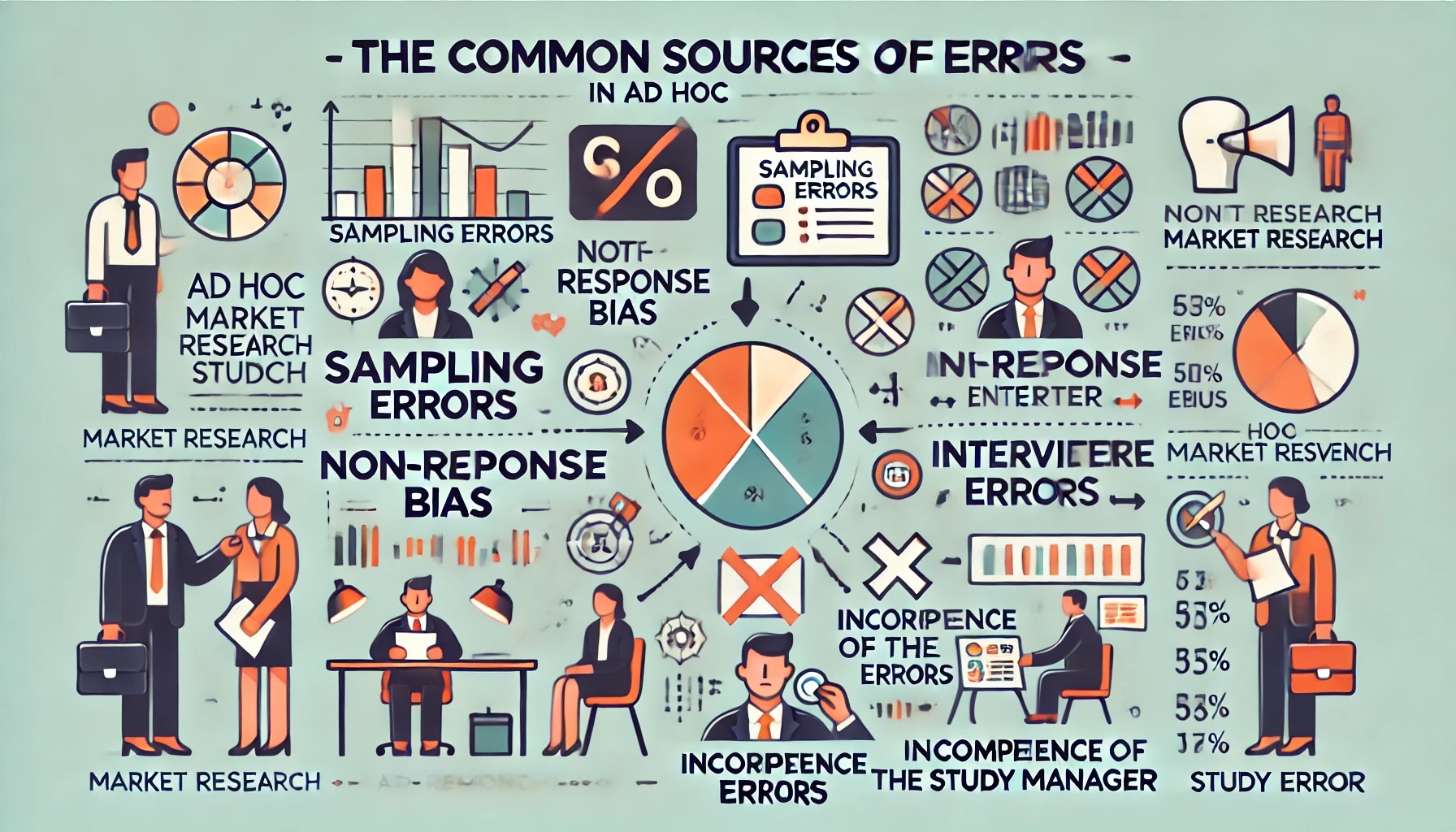
Understanding the Sources of Errors in Ad Hoc Studies
Ad hoc studies, particularly in the realm of market research, are invaluable for gathering specific insights tailored to unique projects. However, the precision and reliability of these studies can be significantly compromised by various sources of error. The section from the provided text delineates these errors and highlights the critical factors that can undermine the validity of an ad hoc study.
Sampling Errors
One of the primary sources of errors in ad hoc studies is related to sampling. Poor sampling procedures can lead to significant inaccuracies. This includes errors such as:
- Incorrect Sampling Methods: Utilizing inappropriate techniques for drawing samples can skew the results. For instance, failing to randomize properly or using a sampling frame that doesn't accurately represent the population can lead to biased outcomes.
- Insufficient Sample Size: A sample that is too small may not capture the diversity and variability of the population, leading to results that are not generalizable.
Non-Response Bias
Non-response bias occurs when participants selected for the study do not respond. This can happen due to several reasons:
- Refusal to Participate: Some individuals may outright refuse to participate, which can skew the sample if those refusing have different views from those who participate.
- Absenteeism During Surveys: Participants may be absent or unreachable during the survey period, resulting in missing data.
Interviewee Errors
Errors can also originate from the interviewees themselves. These include:
- Forgetting Information: Interviewees may forget relevant details, leading to incomplete or inaccurate responses.
- Providing False Answers: Deliberate or inadvertent false answers can distort the data, compromising the study's reliability.
Interviewer Errors
The role of the interviewer is crucial in gathering accurate data. Errors here can include:
- Selection Bias: The interviewer might unintentionally select respondents who are not representative of the entire population.
- Faulty Questionnaires: Using poorly designed questionnaires that include ambiguous, leading, or irrelevant questions can lead to invalid responses.
Incompetence of the Research Manager
The research manager's competence is paramount in ensuring methodological rigor. Errors here include:
- Inappropriate Methodology: Choosing an unsuitable methodology can lead to incorrect conclusions.
- Improper Question Formulation: Crafting questions that are not clear, unbiased, or relevant can confuse respondents and lead to inaccurate data.
Mitigating Errors
To reduce the risk of errors, it is essential to:
- Implement Rigorous Sampling Procedures: Ensure that sampling methods are appropriate and that sample sizes are sufficient to capture the population's diversity.
- Encourage Participation: Utilize strategies to minimize non-response, such as follow-up reminders and incentives for participation.
- Train Interviewers Thoroughly: Ensure that interviewers are well-trained to minimize selection bias and to use questionnaires effectively.
- Design Robust Questionnaires: Develop clear, unbiased, and relevant questions to elicit accurate responses.
- Enhance Research Manager Competence: Invest in the continuous training and development of study managers to ensure methodological appropriateness and precision in question formulation.
Conclusion
Ad hoc studies are vital for specific and targeted insights in market research. However, the potential for errors is significant, and understanding these sources of error is crucial for improving the reliability and validity of the findings. By addressing sampling errors, non-response bias, interviewee and interviewer errors, and ensuring the competence of the research manager, researchers can enhance the quality and credibility of their ad hoc studies.
